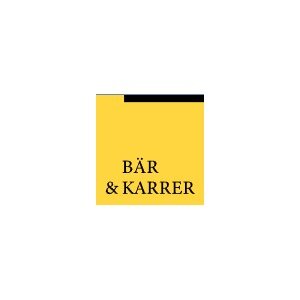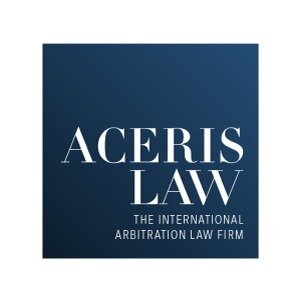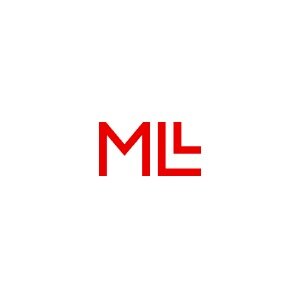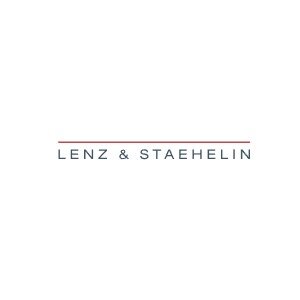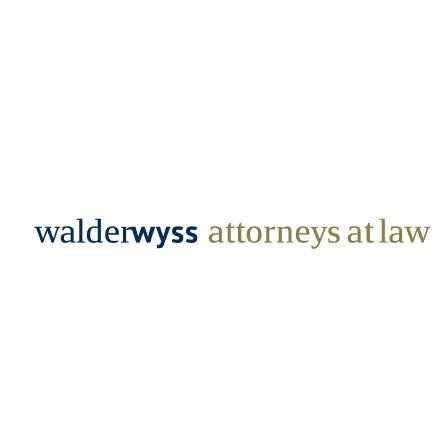Best Conveyancing Lawyers in Geneva
Share your needs with us, get contacted by law firms.
Free. Takes 2 min.
Free Guide to Hiring a Real Estate Lawyer
List of the best lawyers in Geneva, Switzerland
About Conveyancing Law in Geneva, Switzerland
Conveyancing is the legal process involved in transferring ownership of real estate from one person or entity to another. In Geneva, Switzerland, this process is regulated by both federal and cantonal laws, with several unique procedures and legal requirements. Conveyancing typically covers the drafting and signing of sale and purchase contracts, due diligence, payment procedures, and registration of property rights in the land registry (Registre foncier). The process differs from other countries and often requires the guidance of a licensed legal professional to ensure compliance with local regulations.
Why You May Need a Lawyer
Engaging a lawyer is highly recommended in Geneva for several reasons related to the conveyancing process. Common situations where individuals and businesses seek legal assistance include:
- Navigating complex legal requirements and paperwork
- Ensuring that contracts are legally sound and protect your interests
- Managing negotiations and communications with the other party
- Conducting due diligence to identify any legal, financial, or planning issues connected with the property
- Securing mortgages or other financing and addressing related conditions
- Interpreting and complying with cantonal and federal property laws, especially regarding foreign buyers
- Resolving disputes or clarifying property boundaries and title information
Having professional legal advice helps to prevent costly errors, reduce risks, and offer peace of mind throughout the process.
Local Laws Overview
Geneva's conveyancing laws blend Swiss national regulations with specific local rules. Important aspects include:
- Sale and purchase agreements must be executed before a notary public (notaire), who has a public office role in Switzerland.
- All real estate transactions are registered at the Registre foncier (Land Registry), which gives legal effect to ownership transfers.
- Foreign individuals and entities face restrictions and additional approval requirements under the Lex Koller federal act.
- Various taxes are applicable, including transfer duties (droit de mutation), notary fees, and potentially capital gains tax for property resales.
- Due diligence is standard practice, covering verification of title deeds, easements, zoning regulations, and any affiliations or encumbrances on the property.
- Transactions involving co-ownership (PPE) or commercial property have additional legal requirements.
- Timelines, legal obligations, and formalities differ based on the nature of the property, buyer nationality, and property location within Geneva.
Frequently Asked Questions
What is the role of the notary in Geneva's conveyancing process?
The notary is a public officer responsible for drafting, witnessing, and registering property transfer documents. In Geneva, all real estate transactions must be formalized through a notary.
Can foreigners buy property in Geneva?
Yes, but restrictions apply. The Lex Koller law regulates property purchases by foreigners, limiting the types and quantity of real estate they may acquire. Legal advice is crucial for foreign buyers.
What are the main taxes involved in a property transaction?
Buyers must pay transfer duties, notary fees, and administrative charges. Sellers may also incur capital gains tax, depending on their circumstances.
How long does a typical conveyancing process take?
The process usually takes between a few weeks to several months, depending on the complexity of the transaction, financing conditions, and whether all documents are in order.
What is the land registry (Registre foncier), and why is it important?
The land registry is a public record of ownership and rights over real estate in Geneva. Registration is essential for legal recognition of ownership.
Is a preliminary sales agreement (compromis de vente) binding in Geneva?
A preliminary sales agreement is not legally binding until executed before a notary. Only notarized deeds are effective in Swiss property law.
Are verbal agreements valid in Geneva real estate transactions?
No, all real estate transactions must be in writing and notarized to be legally valid under Swiss law.
What due diligence should a buyer perform?
Buyers should verify property titles, outstanding mortgages or liens, building regulations, zoning restrictions, and the presence of any easements or servitudes.
Can property transactions be conducted remotely?
While parts of the process can be managed remotely, the notarization of documents generally requires physical presence or an authorized power of attorney.
What legal remedies exist if disputes arise after a transaction?
Disputes can be resolved through negotiation, mediation, or litigation. Legal proceedings are generally handled by the Geneva courts, and engaging a lawyer is highly recommended.
Additional Resources
If you are seeking more information or need assistance in Geneva, consider the following resources:
- Registre foncier de Genève - for property and land registry inquiries
- Association des Notaires de Genève - directory of local notaries
- Barreau de Genève (Geneva Bar Association) - for lawyer recommendations
- Service de l'enregistrement et du timbre - for information on taxes and fees
- L'Office du logement de Genève - guidance on housing regulations and tenant rights
- Official Geneva canton portal - legal forms and administrative support
Next Steps
If you require legal assistance with conveyancing in Geneva, start by compiling all relevant property documents and identification. Contact a qualified Geneva notary or lawyer who specializes in real estate. Prepare to discuss your situation, your objectives, and any concerns you may have about the transaction. A legal professional can provide a personalized consultation, clarify the procedures ahead, and advocate on your behalf to ensure a smooth and compliant transfer of ownership. Even if you're at the early stages of considering a property transaction in Geneva, seeking qualified legal advice is the best step toward a successful outcome.
Lawzana helps you find the best lawyers and law firms in Geneva through a curated and pre-screened list of qualified legal professionals. Our platform offers rankings and detailed profiles of attorneys and law firms, allowing you to compare based on practice areas, including Conveyancing, experience, and client feedback.
Each profile includes a description of the firm's areas of practice, client reviews, team members and partners, year of establishment, spoken languages, office locations, contact information, social media presence, and any published articles or resources. Most firms on our platform speak English and are experienced in both local and international legal matters.
Get a quote from top-rated law firms in Geneva, Switzerland — quickly, securely, and without unnecessary hassle.
Disclaimer:
The information provided on this page is for general informational purposes only and does not constitute legal advice. While we strive to ensure the accuracy and relevance of the content, legal information may change over time, and interpretations of the law can vary. You should always consult with a qualified legal professional for advice specific to your situation.
We disclaim all liability for actions taken or not taken based on the content of this page. If you believe any information is incorrect or outdated, please contact us, and we will review and update it where appropriate.




